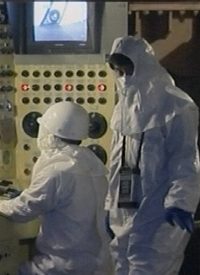
“The monitors were told that as of today, they are out, no more access permitted to any facilities in Yongbyon. But as of now, they are still in their guest house on the premises,” a senior diplomat told Reuters.
After North Korea’s first nuclear weapons test was conducted in October 2006, the communist regime ceded to outside pressures and signed a disarmament pact with China, South Korea, Russia, the United States, and Japan in February 2007 and proceeded to disable its nuclear testing facilities.
The International Atomic Energy Agency in Vienna announced on September 24 that North Korea had barred United Nations inspectors from a plutonium reprocessing plant at the Yongbyon facility, but the Pyongyang regime continued to allow the IAEA to verify the inoperable status of the rest of the plant. Now, with the latest announcement, the entire nuclear facility will be off limits to inspectors.
Observers of international diplomacy have attributed the North Korean actions to renege on their previous agreement to their anger at not being removed from a U.S. blacklist of sponsors of terrorism. The U.S. government has said it would take North Korea off the list, which would allow for expanded trade and economic benefits to the communists, once a system to verify North Korean compliance had been agreed to.
One observer, Paik Hak-soon, director at South Korea’s Center for North Korean Studies, told Reuters in Seoul: “North Korea is trying to strengthen its position. This is a follow-up to the decision to restore the nuclear facility…. It is something happening in the tug-of-war with the United States.”
On October 8, just one day before the latest move by the North Koreans, U.S. Secretary of State Condoleezza Rice made a statement insisting that the communist North meet prescribed standards for verifying its nuclear disarmament. “We are continuing to work on it. This is an issue of whether the verification protocol meets our standards," Rice told reporters. U.S. Assistant Secretary of State Christopher Hill had engaged in three days of talks in Pyongyang during the week immediately before the latest development. Hill said that the focus of the talks was on establishing verification standards for the North Korean nuclear program, but he provided no further details.



